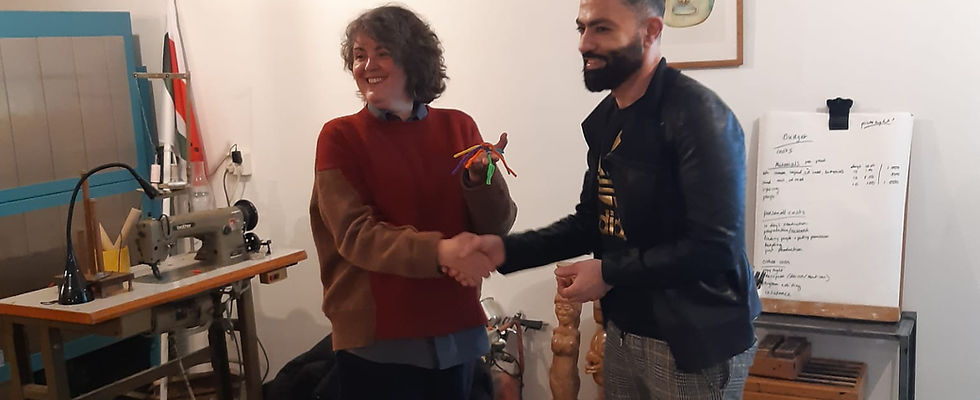Lewis Deep Democracy

Making decisions where all voices are heard
Imagine you’re in a group — a team, a family, a classroom — and you’re trying to make a decision. Usually, the majority wins, right?
Deep Democracy says: “Wait! What about the voices that didn’t get heard? The minority opinions? The quiet ones? The conflict bubbling under the surface?”
Lewis Deep Democracy is a practical method for:
-
Surfacing ALL voices (especially the unpopular or unspoken ones)
-
Turning tension into insight
-
Making group decisions that everyone can live with
Shallow democracy is like voting on pizza toppings — majority says pepperoni, done. Deep democracy says, “Wait — Sam really hates pepperoni. Can we hear what that’s about? Maybe there’s something deeper we’re missing.”
Instead of just counting votes, Deep Democracy counts feelings, energy, and resistance too.
Tools of Lewis Deep Democracy
1. Check-In
A go-around where everyone briefly shares how they’re doing or what's on their mind.
Think of it as a mood-lighting tool — it tells you the emotional weather in the room before the meeting really starts.
2. The Soft Shoe Shuffle
A conversation on your feet: one person makes a statement and the more you agree with them, the closer you stand to them, the more your disagree, the further away you stand. In this way, you can see the constellations of opinions around a theme, even when people don't speak out.
3. The Debate
When real tension arises (and it will), the group creates a safe space to express strong feelings, even anger, in a structured way. Two sides in the room are formed, and everybody can start on the side they most agree with. Then each side gets to speak fully, taking turns. The secret: you get to switch side at any point of the debate by literally crossing over to the other side, and you can cross back when somebody makes a statement you don't agree with. This creates fluidity in the debate.
4. Role Theory
The idea that different roles or perspectives live in all of us — even the ones we oppose. Sometimes, when we hear someone speak strongly, it stirs something in us too.
Founders of Lewis - Deep Democracy
Myrna and Greg Lewis (South Africa) developed this method in post-apartheid conflict resolution contexts, based on the principes of processwork.
They wanted to create practical tools for everyday people to navigate group conflict, power differences, and decision-making.